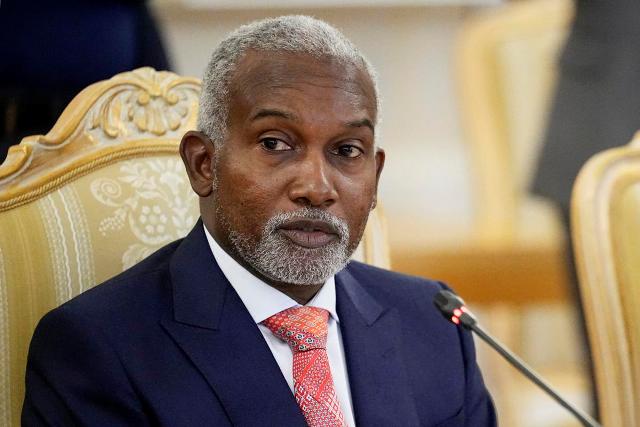The National Broadcasting Commission (NBC) has come under criticisms following its revocation of the operating licences of the AIT/RayPower FM, Silverbird TV and 50 other broadcast media stations across the country for alleged N2.6 billion debts.
Recall that the director general of the NBC, Mr. Balarabe Ilelah yesterday in a statement that the licences were revoked because the media houses failed to renew their broadcast licences.
The debtor-stations which also include state government-owned outfits are the Africa Independent Television (AIT) and its sister radio station, Raypower FM; Silverbird Television, Rhythm FM (Silverbird Communications Ltd), Greetings FM (Greetings Media Ltd), Tao FM (Ovidi Communications Ltd), Zuma FM (Zuma FM Ltd), Crowther FM (Crowther Communications Ltd), WE FM (Kings Broadcasting Ltd), Linksman International ltd, Bomay Broadcasting Services Ltd, MITV (Murhi International Group Ltd).
Others are Classic FM (Pinkt Nigeria Ltd), Classic FM (Pinkt Nigeria Ltd), Classic TV (Pinkt Nigeria Ltd), Beat FM (Megalectrics LTD), Cooper Communications Ltd, Splash FM (West Midlands Ltd), Rock City FM (Boot Communications Ltd), Family FM (Kalaks Investments Nig. Ltd), Space FM (Creazioni Nig. Ltd), Radio Jeremi (Radio Jeremi ltd), Wave FM (South Atlantic Media Ltd), Kogi State Broadcasting Corporation, Kwara State Broadcasting Corporation, Niger State Broadcasting Corporation, Breeze FM (Bays Water ltd),Vibes FM (Vibes Communication ltd) and Family Love FM (Multimesh Broadcasting Co. ltd).
The rest are Gombe State Broadcasting Corporation, Lagos State Broadcasting Corporation, Osun State Broadcasting Corporation, Ogun State Broadcasting Corporation, Ondo State Broadcasting Corporation, Rivers State Broadcasting Corporation, Bayelsa State Broadcasting Corporation, Cross River State Broadcasting Corporation, Imo State Broadcasting Corporation, Anambra State Broadcasting Corporation, Borno State Broadcasting Corporation, Yobe State Broadcasting Corporation, Sokoto State Broadcasting Corporation, Zamfara State Broadcasting Corporation, Kebbi State Broadcasting Corporation, Jigawa State Broadcasting Corporation, Kaduna State Broadcasting Corporation, and Katsina State Broadcasting Corporation.
The director general had directed its state offices to liaise with security agencies to ensure the shutdown of the operations of the affected stations within the 24 hours of the announcement
In addition, the NBC prayed all broadcast stations, which had not renewed their licences for the current period to do so within the next 30 days to avoid sanctions.
The director general further called on all internet protocol television and other broadcast stations that were streaming online to register with the commission to avoid disconnection.
“Broadcasters should note that having a DTT or FM licence does not warrant a broadcaster to stream online; they are two different licences,” he added.
Reacting to the clampdown, the Nigerian Guild of Editors (NGE) said if the order was not reversed it would lead to job loss.
The Guild in a statement by its president, Mr. Mustapha Isah, and the general secretary, Mr. Iyobosa Uwugiaren, said it was not against the NBC embarking on revenue drive but expressed the concern that the commission did not factor the current operating harsh business environment in the country into its decision.
“The NGE is worried because media houses, which played and continue to play a key role in the nurturing and development of democracy can’t just be off air no matter the reasons.
“While the Guild is not against broadcast stations fulfilling their financial obligations to the NBC, we note that the current harsh operating environment that has crippled every sector in our nation was not taken into account by the NBC before its action.
“Currently, it is difficult for private stations to import broadcast equipment due to the high exchange rate. We are all aware of the high operational cost, including the cost of diesel to power their generating sets,” NGE said.
The editor’s club tasked the NBC to enter into dialogue with the affected stations to restructure the debts owed and work out a convenient payment period to ensure their survival.
“A caring government should be concerned about the possibility of job losses rather than revenue generation. After all, one of the functions of the NBC is working for the survival and the development of the broadcast industry.
“A critical stakeholder in the nation’s democratic space cannot be shut out at this critical moment of our democracy, especially when the country is preparing for the 2023 general election,” it stated.
Going forward, the Guild called for a review of the NBC Act to increase the lifespan of a broadcast licence from five to at least 10 years.
It also canvassed for a reduction of the licence fees, considering the fact that several broadcast stations now operate in the country with Lagos alone playing host to about 50 radio stations.
For its part, the Nigeria Union of Journalists (NUJ) decried the revocation exercise saying the commission carried out its action thoughtlessly.
In a statement signed by its national chairman, Mr. Chris Isiguzo, the NUJ said: “It should be noted that this wholesale revocation of licences at this critical time of insecurity in the country appears to be a decision taken without careful prior deliberation, consultation or counsel.
“While we regret the inability of these broadcast stations to fulfill their obligations to NBC, in-view of dwindling resources, we caution against such large-scale clampdown of broadcast stations in disregard to security issues and the attendant consequences.
“We cannot afford the unpleasant outcome of such a media blackout at this time. We call on NBC to exercise more restraint on this issue in consideration of national security and allow for more dialogue and consultation to find a better way of dealing with the situation,” NUJ said.
Also in its reaction, the International Press Centre (IPC) Nigeria condemned the commission’s action describing it “sweeping” and “arbitrary.”
In a statement by its officer, Melody Lawal, the IPC said: “The IPC holds that the sweeping revocation confirms its concern that the NBC exercises its powers arbitrarily without recourse to the public interest.
“It also confirms our worry that the NBC continuously constitutes itself as the accuser, the prosecutor and the judge in its own case.
“In this particular instance, the NBC has not only ordered the revocation of licences of many TV and radio stations, it has gone further to usurp the authority of the President and Commander-In-Chief and the National Assembly by directing security agents to move in and effect its order.
“The IPC calls on the NBC to exercise caution and ensure that it exhausts engagement channels before wielding a stick that may not only lead to thousands of job losses, but also shrink the information dissemination space.”
Meanwhile, the Broadcast Organisation of Nigeria (BON) has appealed to the commission to withdraw the shutdown and revocation orders and to allow the implementation of the debt recovery template already submitted to it.
In a letter of appeal signed by the executive secretary of BON, Dr. Yemisi Bamgbose, the organisation said urged the commission to consider the “hostile economic situation,” in the country adding that it (BON) was mindful of the fact that it is statutory for the affected broadcast stations to pay licence fees.
“It is a known fact that media income has seriously nosedived as a result of the global impact of COVID-19 on the general economy which had negative consequences on the income of broadcast media houses,” BON said.
It explained that the media had little or no earnings, even from advertising, during the pandemic, stressing that they operated when other sectors of the economy were shut down on account of the scourge.
BON also stated that its members are still adversely affected by the extended economic impact of the pandemic and “global economic recession which has affected the nation’s economy continued to escalate the economic woes of broadcast media organisations.
“Within the last one year, broadcast media houses have been groaning under heavy burden created by high cost of running the stations, specifically the cost of diesel which has gone up beyond reach.
“While many sectors have closed operations as a result of the current economic problems, Radio and Television stations remained on air at a loss, recognising the essence of prompt information in a precarious situation like ours,” the organisation added.
It further noted that closure of the broadcast houses would lead to job loss and “will throw thousands of workers to an already over-saturated labour market therefore taking food out of the tables of millions of people.
“Without exaggeration, this will not be complementary to the efforts of the government at generating employment.”
Besides, it said shutting down the stations would create further problems, as the non-broadcast of commercials already booked would not be paid for.




























































